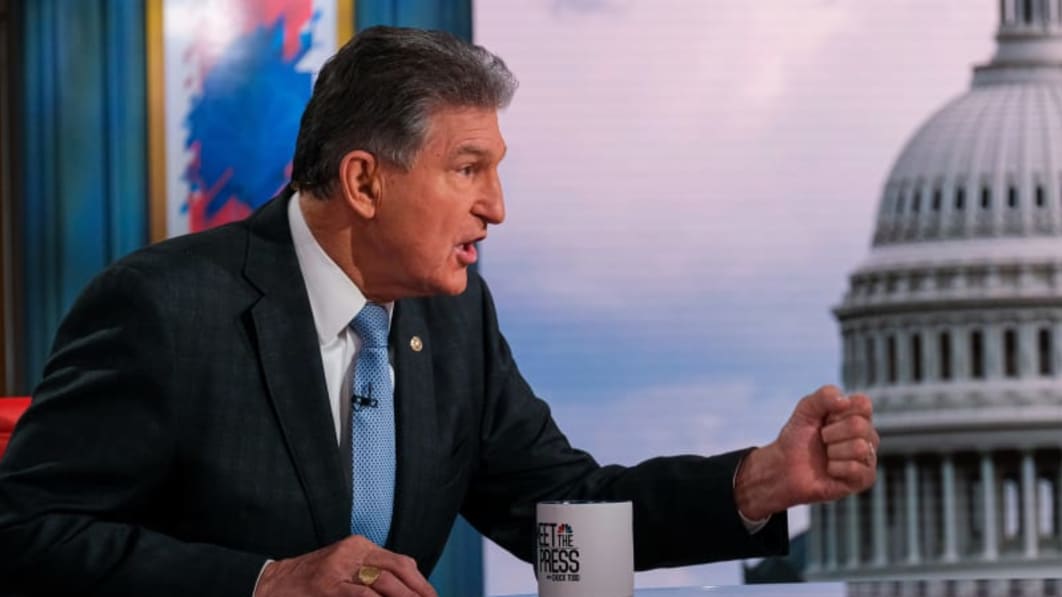
Tesla electric vehicles are shown at a sales and service center in Vista, California
Thu, January 26, 2023
By David Shepardson
WASHINGTON (Reuters) - Senator Debbie Stabenow thwarted a bid on Thursday by fellow Democrat Joe Manchin to pass a measure that would block some electric vehicles from receiving a $7,500 tax credit.
The $430 billion U.S. Inflation Reduction Act passed in August restricts the $7,500 consumer tax credits to North American-made EVs and imposes new battery sourcing rules and again made General Motors and Tesla eligible for EV tax credits.
The U.S. Treasury in December said it would not issue proposed guidance on battery sourcing rules until March, effectively giving some EVs not meeting new requirements a few months of eligibility in 2023 before the battery rules take effect.
That drew Manchin's ire, who proposed legislation on Wednesday to make the battery tax credit requirements retroactive to Jan. 1. Manchin, chair of the Senate Energy Committee, wants to shift the U.S. battery supply chain away from China.
"China has cornered the electric vehicle supply chain market," Manchin said. Treasury is "now continuing to let the $7,500 credit go without any concerns at all about the critical mineral requirements."
Manchin, joined by Republican Senator Mike Braun, sought unanimous consent to pass the proposal but Stabenow objected.
The EV credit is "complicated, it doesn't work for several years for American companies," Stabenow said. Automakers need more time to meet battery sourcing requirements, she said.
"It is not unreasonable what Treasury is doing ... they have been given an incredibly complicated task to try to figure out how this consumer credit will work," Stabenow said.
In a Reuters interview, Stabenow said Manchin's bill "would literally take away credits from people who are buying cars today ... Fundamentally, (Manchin) is not a fan of EVs."
The Treasury did not comment on Manchin's bill but said it did not act to give car companies a window of eligibility. The "March target release date for battery sourcing guidance reflects the time that has been needed to work through significant complexities."
(Reporting by David Shepardson; editing by Grant McCool)
Sen. Joe Manchin bill would cut off $7,500 EV tax credits allowed by loophole
He's angry that the battery sourcing requirement won't kick in until March
JOEL STOCKSDALE
Jan 25th 2023 at 11:03AM
15comments

Senator Joe Manchin, chairman of the U.S. Senate Committee on Energy and Natural Resources, has made it quite clear that he's upset about some of the loopholes left in the Inflation Reduction Act's (IRA) EV tax credit sections. And he's going to try to close them. His first bill is being proposed today, and it targets the rules about battery sourcing.
Part of the IRA's plug-in vehicle tax credit requirements stipulate that a certain amount of battery materials must be sourced from North America, in amounts that will go up over the next few years. But the U.S. Treasury has not yet written its rules pertaining to this part of the IRA, saying that it will issue those rules in March. This means that until March, plug-in cars otherwise meeting the battery size and price requirements are still eligible for the full $7,500 tax credit, even if their batteries were sourced overseas. Many of these vehicles would otherwise only be eligible for half of that $7,500 amount, as half is for final assembly in the U.S. and the other half is for North American battery content.
Manchin's proposed bill would amend the battery requirement section of the IRA to make the date for compliance January 1 of this year. As a result, any cars currently qualifying for the whole credit would have the battery requirement part revoked — potentially resulting in some much smaller credits for anyone who has already bought a car under current rules, or who is about to in the next couple of months.
In a statement accompanying the bill, Manchin said:
“It is unacceptable that the U.S. Treasury has failed to issue updated guidance for the 30D electric vehicle tax credits and continues to make the full $7,500 credits available without meeting all of the clear requirements included in the Inflation Reduction Act. The Treasury Department failed to meet the statutory deadline of December 31, 2022, to release guidance for the 30D credit and have created an opportunity to circumvent stringent supply chain requirements included in the IRA.
"The IRA is first-and-foremost an energy security bill, and the EV tax credits were designed to grow domestic manufacturing and reduce our reliance on foreign supply chains for the critical minerals needed to produce EV batteries. The United States is the birthplace of Henry Ford who revolutionized the automotive industry with the Model T. Being an automotive powerhouse is in our blood, which is why it is shameful that we rely so heavily on foreign suppliers, particularly China, for the batteries that power our electric vehicles.
"We cannot continue down this path. I’ve said it before, and it bears repeating that we can’t have national security without energy security and energy independence. The IRA and the EV tax credits must be implemented according to the Congressional intent to ensure the United States, as the superpower of the world, is not beholden to countries that don’t share our values."
The proposed bill doesn't apply to anything related to the other big loophole, which is around car leasing. That one allows foreign-built vehicles to still qualify for the full $7,500 credit as long as they're leased, not purchased outright. But considering Manchin's strong opposition to both the delayed battery rule making and the broad leasing interpretation, we bet he will introduce a bill to close the lease loophole, too.
Related video:
No comments:
Post a Comment